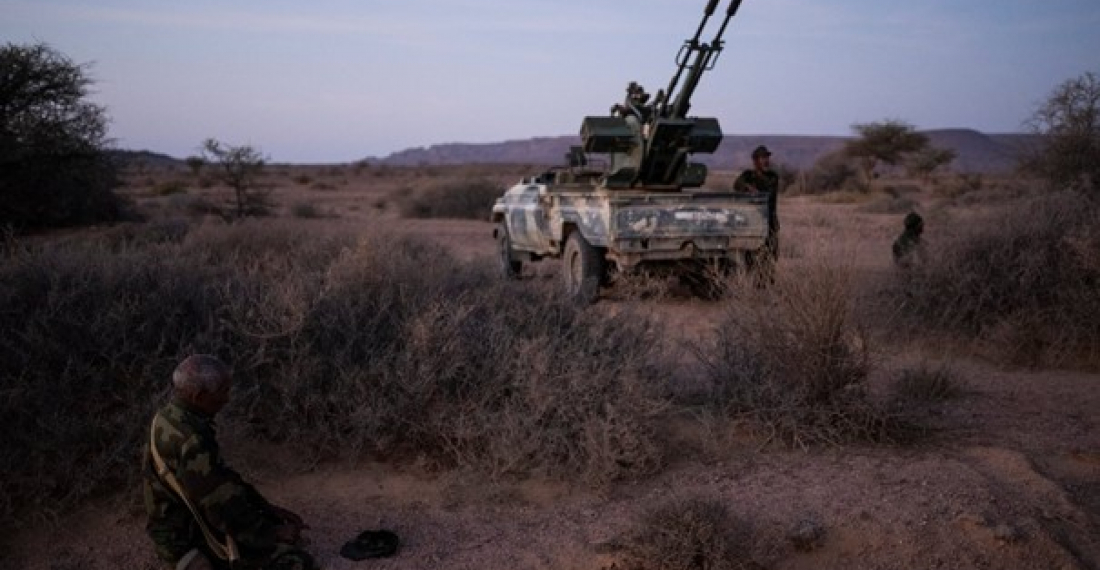The Spanish government, led by socialist prime minister Pedro Sánchez, in a surprise move, on Friday (18 March) declared its support for the Moroccan position on the Western Sahara issuer, breaking a long-standing policy of neutrality. The decision was badly received in Algiers, a long time backer of independence for Western Sahara, leading to the recall of the Algerian ambassador to Spain the following day.
In a letter sent to the Moroccan leader, King Mohammed VI, Sanchez supported the Moroccan strategy to make Western Sahara - a vast phosphate-rich desert region - an autonomous territory within Morocco, describing the Moroccan autonomy strategy as "the most serious, realistic and credible basis for settling the dispute".
The Moroccan Ministry of Foreign Affairs was quick to welcome the decision.
Western Sahara is a former Spanish colony classified as "non-autonomous " by the United Nations, with most of its territory under Moroccan control since the 1976 war against the Sahrawi independence fighters of the Polisario Front, a movement supported by Algiers.
Madrid had until now refused to adopt a position on the delicate issue, preferring to support a solution within the framework of the UN, which with its mission Minurso has been trying in vain since the 1991 ceasefire to seal an agreement between the Moroccan kingdom and the Polisario Front.
This diplomatic shift can be explained primarily by a need on the Spanish side to stabilise its conflictual relations with its Moroccan neighbour. From a loosening of anti-terrorist collaboration with Morocco, to the questioning of the enclaves of Ceuta and Mililla, as well as the migratory pressure exerted on Madrid by Rabat, the disputes between the two neighbouring countries are manifold.
In May 2021, Moroccan border police let 10,000 migrants from sub-Saharan Africa pass through, creating chaos in the Spanish enclave city of Ceuta, on the north African coast. This lack of cooperation in the management of migration flows was a consequence of the Spanish government’s decision to allow Brahim Ghali, leader of the Polisario Front and public enemy of the Moroccan kingdom, to be hospitalised in Spain after testing positive to Covid.
The pressure to ensure stability in the south had two main consequences for Spanish domestic and foreign policy. On the domestic front, members of the governing party Podemos, whose electorate almost unanimously supports the separatist struggle of the Polisario Front and which was not informed of the decision taken by the head of government in advance, find this diplomatic reversal difficult to bear. Yolanda Diaz, new leader of Podemos and second vice-president of the government, reaffirmed her commitment to the defence of the Saharawi people following Sanchez’s decision, thus highlighting the Spanish government's divisions on the Western Sahara issue.
The Algerian authorities, historical supporter of the Polisario Front, denounced what they described as the second betrayal by Spain of the Saharawi people, the first being the unilateral Spanish withdrawal from this territory in 1975. At the time this allowed King Hassan II of Morocco to launch a march of 350,000 Moroccan civilians into the territory, effectively annexing it.
The implications of a crisis with Algiers could be serious for Spain. Last year, Algeria supplied almost half of the gas consumed in Spain. Even if this share has fallen to 25% of imported liquefied gas since the closure of two pipelines linked to Spain, the Algerian energy contribution remains essential for Madrid, especially since the EU is currently actively looking for alternatives to Russian gas following the invasion of Ukraine.






